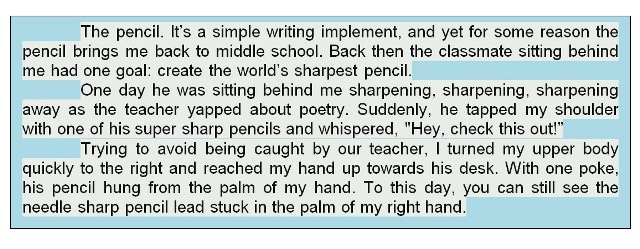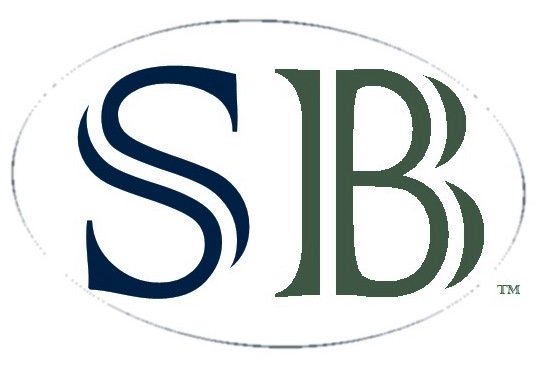How to Write a Speech: 5 Tips When You Need A Speech RIGHT NOW!

One of the best places I learned how to write a speech was through Toastmasters.
Toastmasters is a public speaking and leadership organization that has several clubs in many U.S. and global cities.
During club meetings, members practice speaking and participate in various non-speaking roles. There are opportunities to practice leadership and listening skills too. (Those are as important as speaking.)
Practice is key...
Because, learning how to write a speech (and deliver one) takes practice– whether for a class or because you have to give one publicly soon. Even professionals need ideas and practice with their delivery.
Below are 5 tips for speech writing.
How to write a speech ...
Tip #1 Be Specific
If you don't remember any other tip on this page, remember this one.
Speakers, writers, and creative artists of all kind can benefit from being specific with their work. Pick one specific thing and focus on it.
For example . . . if you decide to speak about pencils, don’t get up there and talk about all the different kinds of pencils.
Pick one specific pencil and show why it’s important or what makes it the best.
Then connect to the audience with that pencil… which leads to the next tip.
Tip #2
Tell a story.
Sometimes when people first learn how to write a speech, they begin by being instructional. They talk "over" the audience, similar to how some ministers speak at their congregation instead of with them.
One way to avoid this is by telling a story that connects to your audience.
People love to hear meaningful stories. It helps them relate to people and things - and understand difficult ideas or concepts.
If I use the pencil example above, may be I might open with a time when something funny happened to me involving a pencil.
Here’s the example:

Tip #3
Select your message.
Think about your speech, but specifically the message. If you've written it down, physically look at it on paper.
Read it aloud.
Can you summarize in three to four words what your speech is about?
Much of how to write a speech well depends on whether you truly know what you want to say.
If you cannot succinctly describe your speech, then perhaps your message is not specific enough.
But, if you can summarize it, look at it a bit more closely.
Think about these questions:
- What about it do you want the audience to remember?
- What will your audience take-away from your speech?
- What unique gift do you give your audience with your speech?
- What do you want your audience to remember about you and your message?
Then, once you know your main message, let that message guide your speech. One key for how to write a speech well is revising your original draft (whether written or in your head).
Nonetheless, rewrite your speech again and incorporate that special message into your speech.
Tip #4
Create an outline BEFORE you write out your speech.
Like great essays, great speeches have an introduction, body and conclusion. The first step in how to write a speech is writing an outline.
Keep things simple. More specific tips can be found here, but the general idea is to break what you want to say into bullet-able points.
For example (back to that sample pencil speech and keeping in mind the tips above), if I write a speech about pencils my outline might look like this:
Subject/Topic: Pencils - mechanical
Introduction:
- story about being stabbed with pencil
- why pencils are important
- why this mechanical pencil is the best.
Body:
- invention of this pencil
- how it grew in popularity
- features
Conclusion:
- future of mechanical pencils
- benefit: no need to sharpen
- challenge audience to use them
Tip #5
Use a catch phrase.
In Tip #3 above, I suggested making your message clear. Think about this a bit.
Is there something that you can use or say that can bring your message home? Is there a phrase you can use?
For example, in Darren LaCroix's world championship Toastmaster speech, his catch phrase is "Ouch." It's a powerful word that supports his main message about goals - that falling isn't failing unless you don't keep moving forward after the fall.
Another great example is the Dos Equis commerical. It's one of the greatest advertisements in the last few years. And without saying a word, you’re probably already saying it to yourself: “I don’t always . . . but when I do . . . ”
Darren's speeches and the Dos Equis commercials are powerful because they are memorable. You can’t forget those phrases.
What memorable catch phrase can you create from the main message of your speech - without being cheesy? What memorable moment can you create for your audience?
Is it a phrase or a particular prop?
What ever you choose, it must be meaningful and catchy.
Perhaps with this pencil stabbing speech, I bring in a life sized mechanical pencil. Or, a normal size one.
May be I would just refer back to the “Hey, check this out!” quote from my pencil
stabbing classmate.
Or perhaps you could think of some other slogan, like the Dos Equis commercial?
In the pencil example may be it’s, “Stop the stabbing! Use mechanical," or "Mechanical is non-stab-able. (That’s a bit rough, but you get the idea.)
Bonus Tip:
How to make the audience remember you...
You want to be remembered. We all do - unless we make a mistake or our zipper slides down.
When you are learning how to write a speech, always think of your audiences needs.
Unless you're speaking to prisoners, the audience isn't forced to listening to you. (Well, may be if they're kids they might be.) But, most audiences at the very least gave up gas and their time to hear you.
They are interested in the topic and what you have to say about it. They want to know how it can help them. They may even already believe in you and your message. But, they want to be entertained or "get" something from their time listening to what you have to say.
Your audience WANTS you to succeed!
The audience wants you to succeed BECAUSE it means they get something from your message.
Certainly, they don't want to go home and say that the time and gas to hear your speech was a waste.
Your audience might remember what you said (some of it - like the catch phrase or the main message), but most of all they will remember how you and your message made them feel.
Did you rile them up and make them want to do something to help a social injustice cause?
Did you make them fall in love with their spouse again?
Did your words encourage them during a difficult time in their life?
This is your goal: to give your audience what they need. If you do, they will remember you . . . and may ask you to give a second speech.
Advertisement:
Advertisement:







